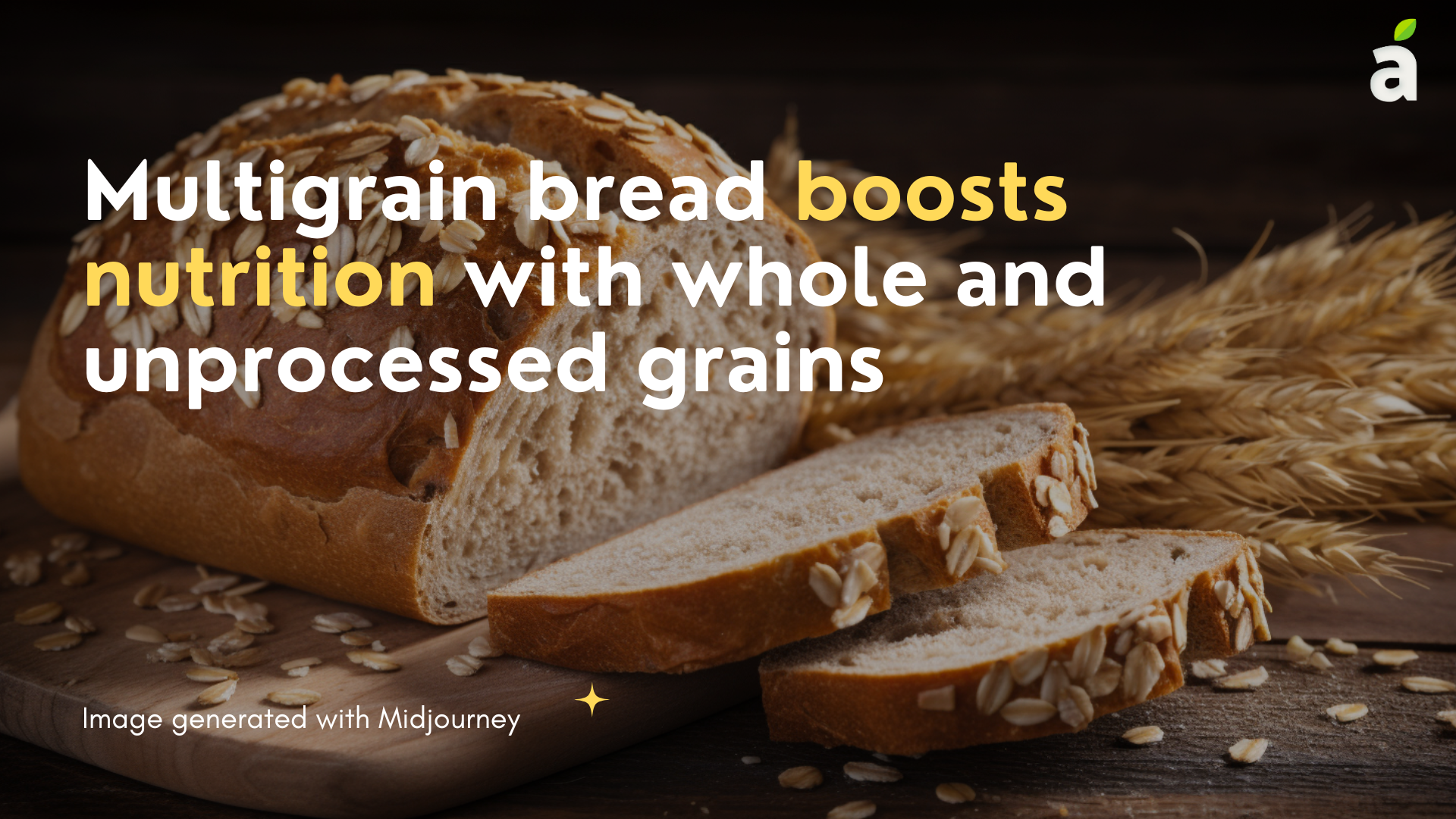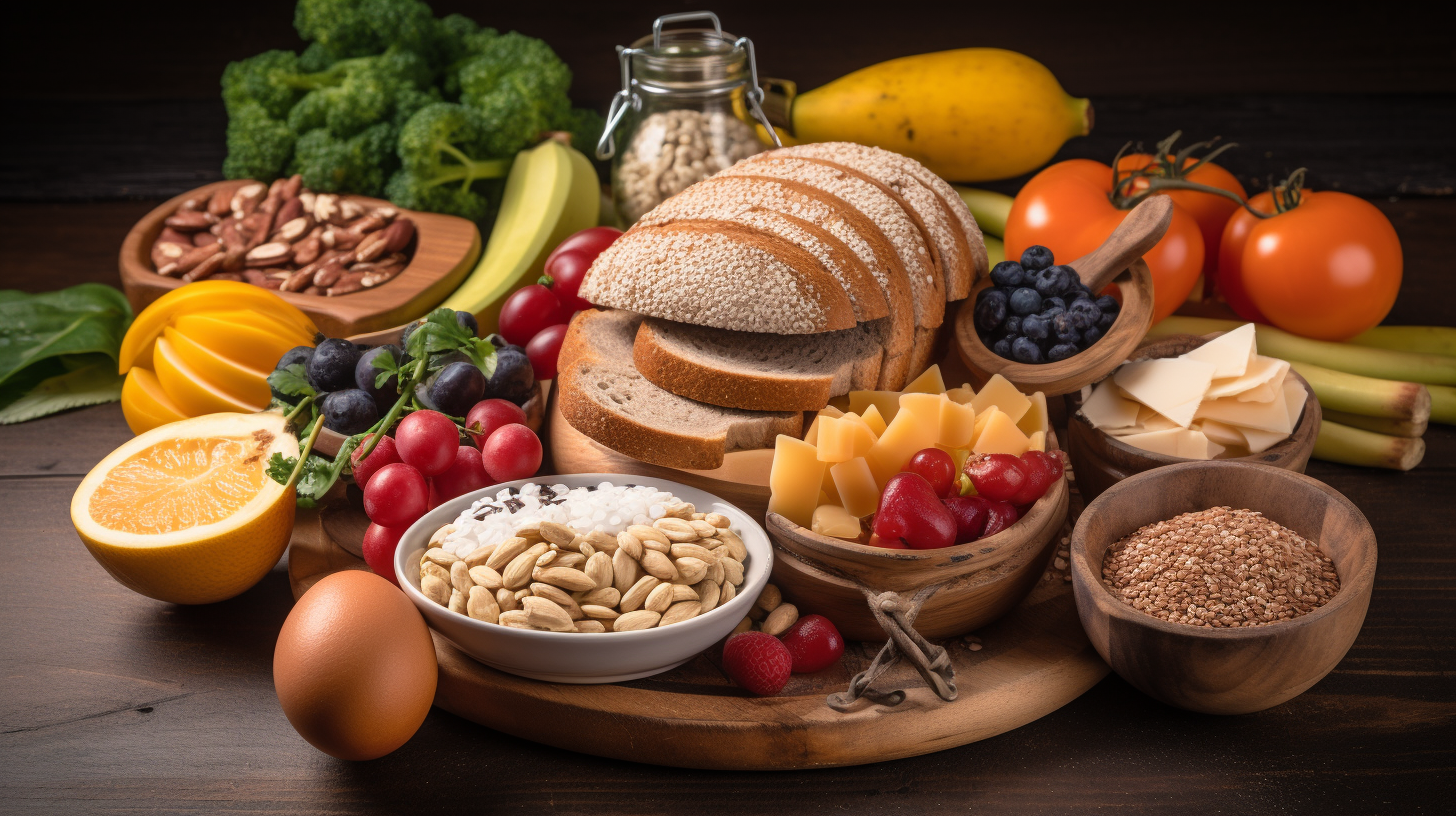Published Date January 24, 2003
Exploring the Untapped Potential of Dietary Fibre
By Team Ariso
4 min read
Last update date: January 24, 2003

Exploring the Untapped Potential of Dietary Fibre
Dietary fibre, an often overlooked yet essential component of our diet, plays a vital role in promoting overall health and well-being. From aiding digestion to reducing the risk of chronic diseases, fibre offers many benefits. In this blog, we will explore what dietary fibre is, its numerous health benefits, foods rich in fibre, and potential symptoms and side effects associated with its consumption.
Understanding Dietary Fibre
Dietary fibre, often referred to as roughage or bulk, consists of plant components that are indigestible and unabsorbable by the body. Dietary fibre encompasses the parts of plants that cannot be broken down or absorbed by the body during digestion.
Types of Fibre:
- Soluble Fiber: Dissolves in water, forming a gel-like substance. It can help lower cholesterol and regulate blood glucose levels. Sources include oats, peas, beans, apples, citrus fruits, carrots, barley, and psyllium.
- Insoluble Fiber: Insoluble fibre does not dissolve in water. It aids in the movement of materials through the digestive system and increases stool size, making it beneficial for those with constipation or irregular bowel movements. Whole wheat flour, wheat bran, nuts, beans, cauliflower, green beans, and potatoes are sources of insoluble fibre.
Unlike other nutrients, dietary fibre is not digested or absorbed. Instead, it adds bulk to stools and promotes regular bowel movements.[1]
Health Benefits of Dietary Fibre
Dietary fibre provides several benefits for bowel health, cholesterol levels, blood sugar control, and weight management. Here are some key points to consider:
- Normalizes Bowel Movements: Fibre increases stool weight and size, making it easier to pass and reducing the likelihood of constipation. It can also help solidify loose stools by absorbing water and adding bulk.
- Maintains Bowel Health: A high-fibre diet lowers the risk of conditions such as haemorrhoids and diverticular disease, while also potentially reducing the risk of colorectal cancer. The fermentation of some fibre in the colon may play a role in preventing colon diseases.
- Lowers Cholesterol Levels: Soluble fibre, found in foods like beans, oats, flaxseed, and oat bran, can help lower total cholesterol levels by reducing "bad" cholesterol (LDL) levels. High-fibre foods may also benefit heart health by lowering blood pressure and inflammation.
- Controls Blood Sugar Levels: For people with diabetes, fibre, particularly soluble fibre, slows down sugar absorption and improves blood sugar control. Consuming a diet rich in insoluble fibre may also lower the risk of developing type 2 diabetes.
- Supports Healthy Weight: High-fiber foods are typically more filling, leading to reduced calorie intake and increased satiety. They also tend to be less energy-dense, meaning they provide fewer calories for the same volume of food.
- Contributes to Longevity: Studies suggest that increasing dietary fibre intake, particularly from cereal fibre sources, is associated with a reduced risk of cardiovascular disease and various cancers.
Incorporating a variety of fibre-rich foods into your daily diet can help you experience these health benefits and enhance your overall well-being. Remember to gradually increase fibre intake and drink plenty of water to prevent any digestive discomfort.[1]
Foods Containing High-Fibre Content
To increase your overall fibre intake, consider incorporating the following:
- Whole Grains: Opt for whole wheat, oats, quinoa, and brown rice instead of refined grains to enjoy higher fibre content.
- Fruits and Vegetables: Include a variety of colourful fruits and vegetables in your diet, such as berries, apples, broccoli, and leafy greens, as they provide essential nutrients and fibre.
- Legumes and Pulses: Incorporate beans, lentils, chickpeas, and peas into your meals for a fibre and protein boost. They can be added to soups, stews, and salads.
- Nuts and Seeds: Snack on almonds, chia seeds, flaxseeds, and walnuts, which not only offer fibre but also provide healthy fats and other essential nutrients.
- Bran and Whole Grain Cereals: To increase your fibre intake, choose cereals and bread made from bran or whole grains, such as bran flakes or whole wheat bread.
By incorporating these fibre-rich foods into your diet, you can enjoy their nutritional benefits and support overall health and well-being.[2]
Symptoms and Side Effects of Dietary Fibre
Consuming excessive amounts of fibre can lead to various symptoms:
- Bloating: You may feel swollen or bloated after consuming too much fibre.
- Gas: Excessive fibre intake can cause increased gas production, leading to flatulence.
- Feeling overly full: Eating too much fibre can make you feel overly full or stuffed.
- Stomach cramps: Experiencing abdominal discomfort or cramps is a common side effect of consuming excessive fibre.
- Digestive issues: Consuming too much fibre can result in constipation or diarrhoea, disrupting your bowel movements.
- Dehydration: Inadequate fluid intake while consuming high amounts of fibre can lead to dehydration.
- Nutrient absorption: Excessive fibre intake can interfere with the absorption of important nutrients like calcium, magnesium, zinc, and iron.
- Weight changes: Your body weight may be affected by excessive fibre intake, leading to unintended weight gain or loss.
- Nausea: In some cases, consuming too much fibre can cause feelings of nausea.
- Rare intestinal blockage: Although rare, consuming extremely high amounts of fibre can potentially lead to intestinal blockage.
While fibre is essential for healthy bowel movements, it's important to maintain a balance and not exceed recommended intake levels. Gradually increasing fibre intake and monitoring how your body responds can help avoid these symptoms.
If you have specific digestive conditions like irritable bowel syndrome (IBS), it's advisable to seek guidance from a healthcare professional to determine the appropriate amount of fibre for your needs.[3]
Conclusion
Dietary fibre is a powerful ally for maintaining optimal health. From improving digestion to reducing the risk of chronic diseases, its benefits are undeniable. By incorporating fibre-rich foods into our diet, we can take a significant step toward promoting overall well-being and leading a healthier life.
Reference
- https://www.mayoclinic.org/healthy-lifestyle/nutrition-and-healthy-eating/in-depth/fiber/art-20043983#:~:text=What%20is%20dietary%20fiber%3F,t%20digested%20by%20your%20body.
- https://www.healthline.com/nutrition/22-high-fiber-foods#22-high-fiber-foods
- https://www.medicalnewstoday.com/articles/321286#symptoms
Keep reading

The germination of the seed
It is expected of women to take the utmost care during pregnancy. They are given a list of do’s and don’ts during pregnancy and even after delivery
By Hetvi Shah

The Dark Side of Chocolate
By Hetvi Shah

The Marvels of Multigrain Bread
By Naurin Ansari

Unlocking the Secrets of Cholesterol
By Naurin Ansari
Choose Healthy With Us.
Know the real truth about your food. Stay informed and healthy, for free.

Download the App Now
Certified nutritionists trust our food recommendations. Safe to say, so can you :)










